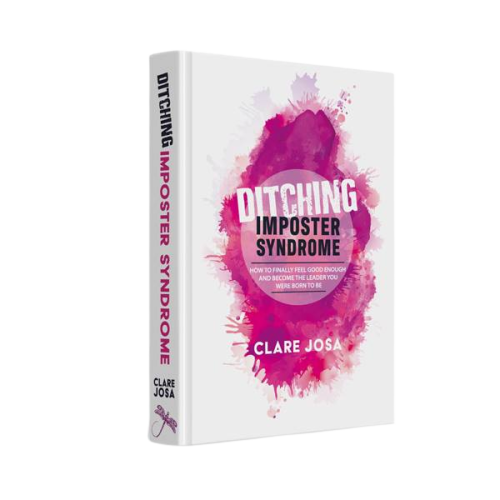The urban myth that Imposter Syndrome only affects women has been blown out of the water by the landmark 2019 Imposter Syndrome Research Study.
Involving qualitative depth interviews and a quantitative survey, this UK-based research showed that men and women are affected at similar rates:
52% of female respondents and 49% of male respondents said they struggle with Imposter Syndrome ‘daily’ or ‘regularly’.
The assumption that it was a ‘girl thing’ comes from two factors, according to the research:
1. The Original 1978 Imposter Syndrome Research
The original research by Pauline Clance and Suzanne Imes, back in 1978, led people to assume that Imposter Syndrome is a female-only phenomenon.
However, most people don’t realise that the research only included women.
Also, culturally, back in the 1970s, few men would have admitted to struggling with Imposter Syndrome, so there was no narrative to contradict the assumption.
Clance’s later work confirmed that men also struggle with this, but it wasn’t as widely publicised.
2. Men And Women Handle It Differently
The 2019 Imposter Syndrome Research Study showed that men and women handle Imposter Syndrome very differently.
Both genders tend to keep it quiet, thinking they are the only person struggling with it.
But women are twenty times more likely to open up to friends and family about how they are feeling than men are.
Men were found to be five times more likely to turn to alcohol and medication, to numb the stress, fear and anxiety that Imposter Syndrome can trigger.
The 2019 research also shows another surprising gender difference – based on the respondents’ self-declared level of seniority in their company:
For men, Imposter Syndrome rates go DOWN when they reach the most senior levels. For women, those rates go UP.
Subsequent qualitative interviews found the key driver for this is that men see their promotion as external validation – approval and evidence that they are good enough. So they don’t feed the self-talk stories that trigger Imposter Syndrome as much.
Women, on the other hand, tended to see their promotion as meaning they now had to prove themselves even more, as the spotlight was on them and people were waiting for them to fail.
To prevent this, companies need to work with women to address potential Imposter Syndrome issues, as part of their promotion on-boarding support.
There was another key finding when it comes to women in senior roles:
Businesses Are Losing Their Best Women Leaders
The research showed that women are far more likely to leave their current employer to seek a promotion than to apply internally, because of the fear of public failure.
With an external move, no one needed to know if they didn’t get the role. With an internal promotion, they felt they would have to leave, if they didn’t get it.
Whereas men tended to be more competitive, putting themselves forward for promotions and opportunities to shine, women tended to wait for these to ‘happen to them’.
The data showed that, in the past year:
- 30% of female respondents had chosen not to volunteer for opportunities in the past year that would have allowed them to shine
- 45% had not applied for a promotion they felt they deserved
- 61% were less likely to speak up with their best ideas or controversial opinions, for fear of being criticised
The research makes it clear why it is so easy for high-achieving women to be overlooked for promotions and golden opportunities.
The evidence points to the fact that Imposter Syndrome is a key factor in the gender pay gap and gender-related glass ceilings, even in companies that are working hard towards equality. And it also explains why positive discrimination and quotas can make it worse.
“To fix the gender pay gap, we must first address Imposter Syndrome.”
Clare Josa | Lead Researcher & Author of Ditching Imposter Syndrome
For the full White Paper on the research study results, click here.
And click here to find out more about Ditching Imposter Syndrome, published by Beyond Alchemy Publishing on 30th September 2019.



